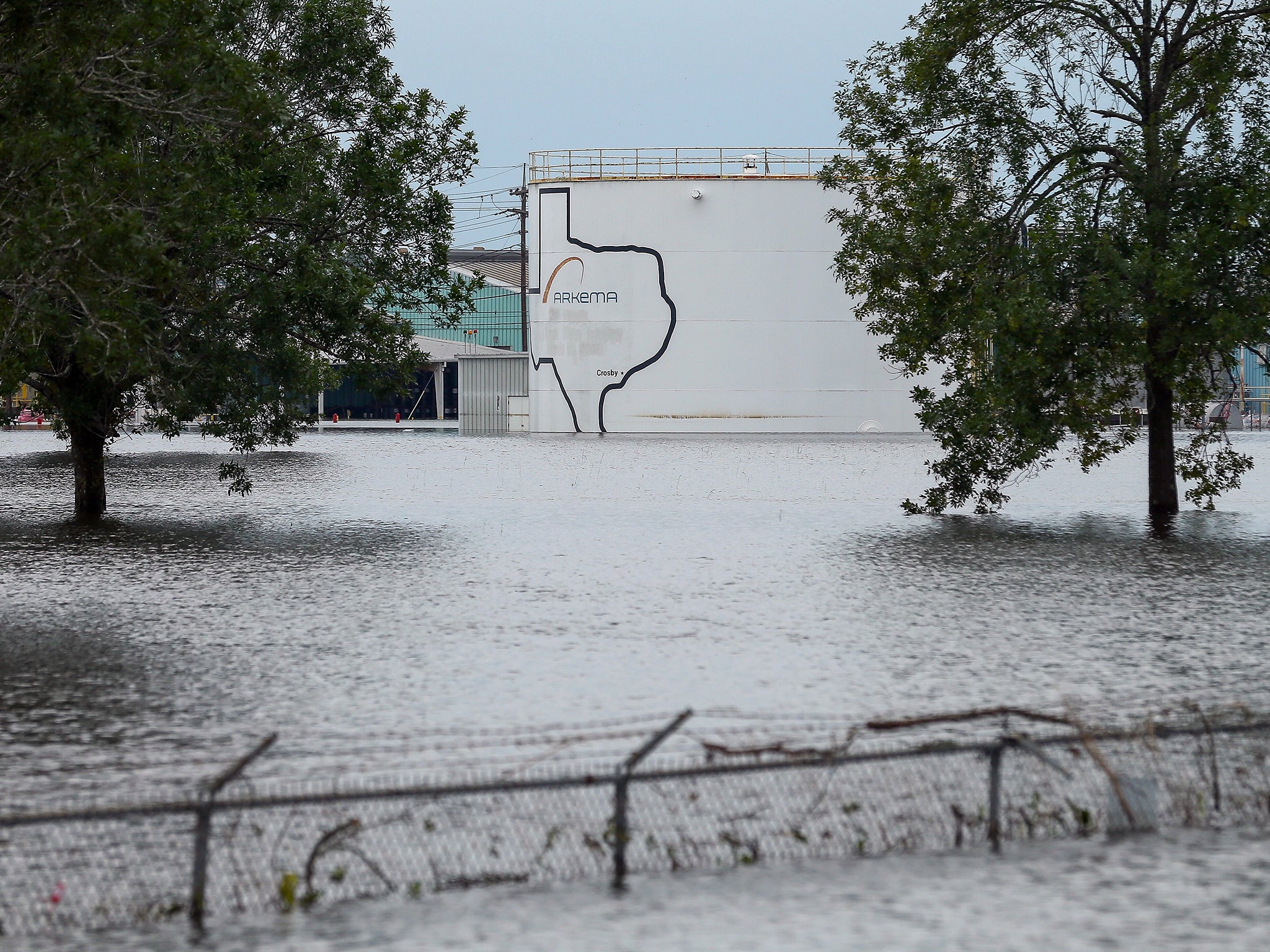Texas chemical plant operators Arkema Inc 'fully expect' more fires
The company said there could be eight more explosions

Your support helps us to tell the story
From reproductive rights to climate change to Big Tech, The Independent is on the ground when the story is developing. Whether it's investigating the financials of Elon Musk's pro-Trump PAC or producing our latest documentary, 'The A Word', which shines a light on the American women fighting for reproductive rights, we know how important it is to parse out the facts from the messaging.
At such a critical moment in US history, we need reporters on the ground. Your donation allows us to keep sending journalists to speak to both sides of the story.
The Independent is trusted by Americans across the entire political spectrum. And unlike many other quality news outlets, we choose not to lock Americans out of our reporting and analysis with paywalls. We believe quality journalism should be available to everyone, paid for by those who can afford it.
Your support makes all the difference.A company that suffered an explosion at a chemical plant close to Houston has said it “fully expects” more fires – potentially as many as eight – as a result of flooding overwhelming the electricity supply that powers its cooling equipment.
Arkema, a French chemical company, confirmed there had been a series of explosions at one of its plants at Crosby, located about 30 miles northeast of Houston. Fifteen members of an emergency team required medical checks as they were suffering “respiratory irritation” after responding to the incident.
Rich Rennard, an executive with Arkema, said at a news conference just hours after the initial explosion, that one of nine refrigerated containers had failed. He said he expected the organic peroxide in up to eight more to degrade, burn and “produce more explosions” and that the smoke created could irritate the eyes, skin and lungs.
“We want local residents to be aware that the product is stored in multiple locations on the site, and a threat of additional explosion remains,” Arkema said in a statement.
“As we communicated in recent days, our site followed its hurricane preparation plan in advance of the recent hurricane and we had redundant contingency plans in place.
“However, unprecedented flooding overwhelmed our primary power and two sources of emergency backup power. As a result, we lost critical refrigeration of the products on site. Some of our organic peroxides products burn if not stored at low temperature.”
The company said it had been working with local officials close to the plant to manage the fallout of the situation. It said that the compounds at the plant were “extremely flammable” and that it had agreed with public officials that “the best course of action is to let the fire burn itself out”.
The plant, had been shut down last Friday, some time before Harvey, then a category-four hurricane, made landfall on the Texas coast, about 30 miles from Corpus Christi. It has been without power since since Sunday and lost refrigeration when backup generators were deluged by the huge floods that have swamped Houston and the surrounding area.

Richard Rowe, chief executive of Arkema’s North America unit, told Reuters that chemicals on the site would catch fire and explode if they were not properly cooled. While the company has been unable to say how long it believes the fires will last, Mr Rowe said beforehand that a fire would not pose any “long-term harm or impact”.
But at a news conference in Washington, Brock Long, the administrator of the Federal Emergency Management Agency said he considered the plumes from the explosion “incredibly dangerous”.
Local officials sought to claim that people had heard not genuine explosions but “a series of pops”.
Bob Royall, assistant chief for emergency operations for the Harris County Fire Marshal’s Office, said: “I don’t want the public thinking these are massive explosions.”
When it was pointed out to him that the company itself had talked of explosions, he said: “We’re on the same page. It’s a matter of terminology. I call it a chemical reaction and an overpressure of the container.”
Join our commenting forum
Join thought-provoking conversations, follow other Independent readers and see their replies
Comments